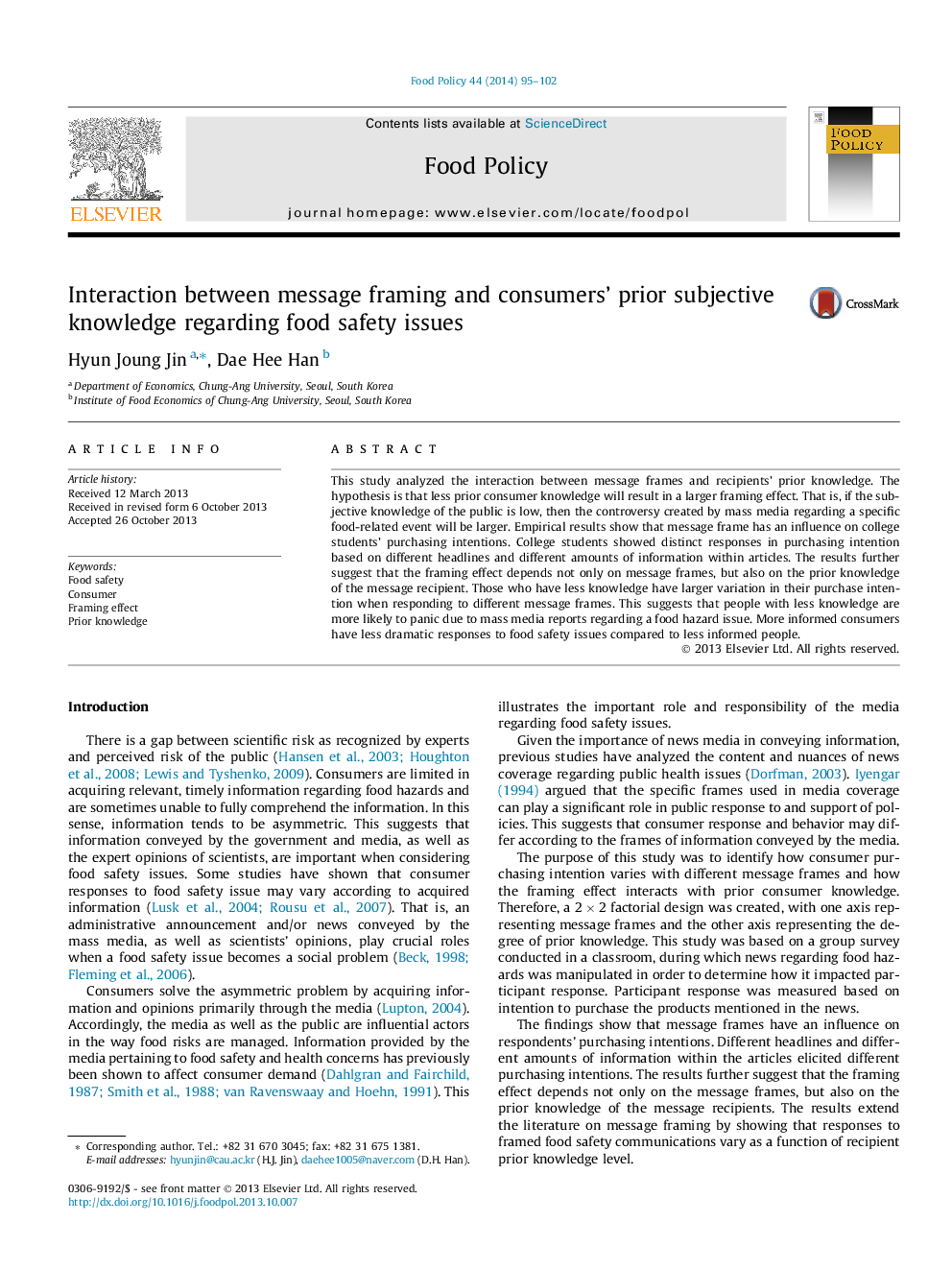| Article ID | Journal | Published Year | Pages | File Type |
|---|---|---|---|---|
| 5070560 | Food Policy | 2014 | 8 Pages |
Abstract
This study analyzed the interaction between message frames and recipients' prior knowledge. The hypothesis is that less prior consumer knowledge will result in a larger framing effect. That is, if the subjective knowledge of the public is low, then the controversy created by mass media regarding a specific food-related event will be larger. Empirical results show that message frame has an influence on college students' purchasing intentions. College students showed distinct responses in purchasing intention based on different headlines and different amounts of information within articles. The results further suggest that the framing effect depends not only on message frames, but also on the prior knowledge of the message recipient. Those who have less knowledge have larger variation in their purchase intention when responding to different message frames. This suggests that people with less knowledge are more likely to panic due to mass media reports regarding a food hazard issue. More informed consumers have less dramatic responses to food safety issues compared to less informed people.
Related Topics
Life Sciences
Agricultural and Biological Sciences
Food Science
Authors
Hyun Joung Jin, Dae Hee Han,
